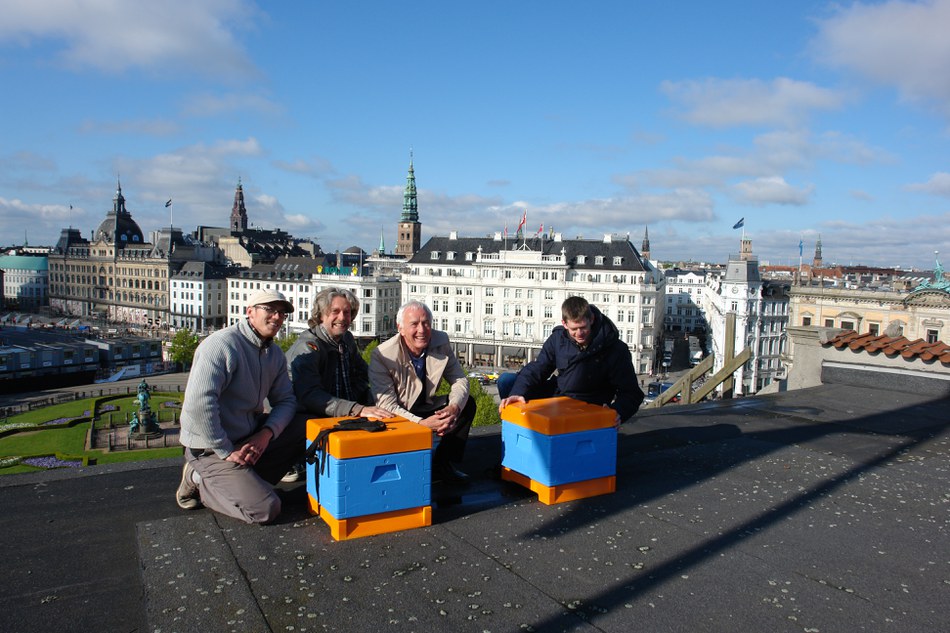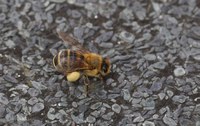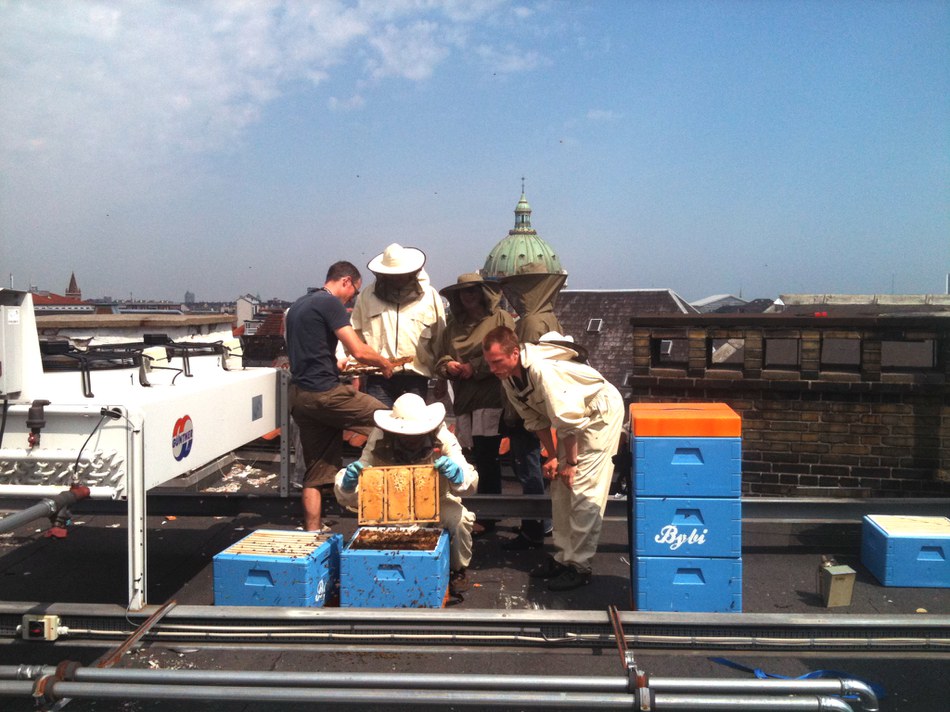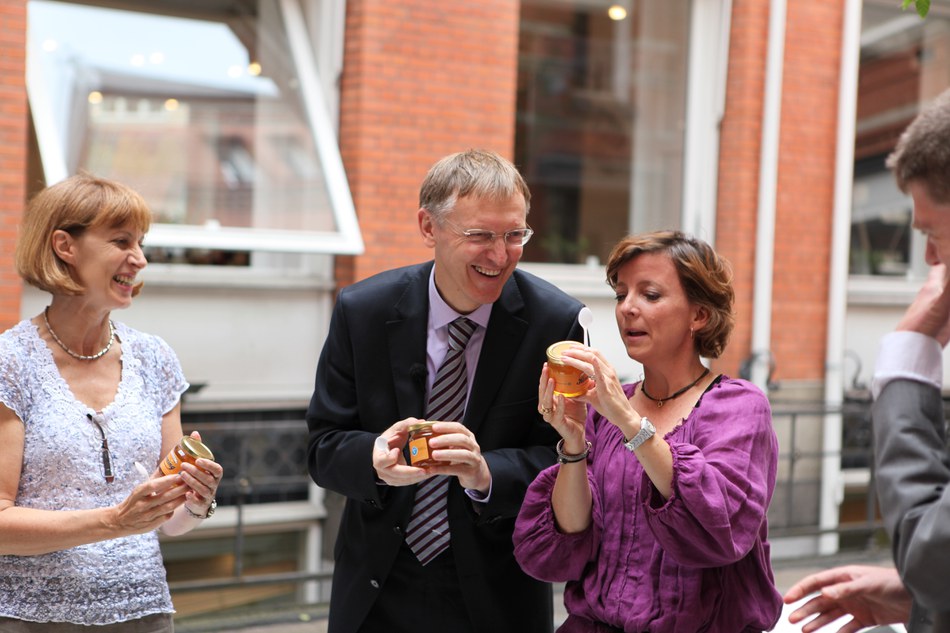The EEA has been keeping bees on its roof since May 2011. Three hives sit on the roof of the five-storey building in central Copenhagen, and during the summer are home to approximately 120,000 bees. These hives can provide an estimated 100kgs of honey per year. The hives are managed by the Bybi (Danish for ‘City Bee’) social enterprise, a prize-winning and ground-breaking social enterprise that is bringing millions of bees to the city.

May 2011: Beehives arrive on the EEA's roof
In addition to its environmental value, the project provides new opportunities for disadvantaged people who can be trained to look after the bees around Copenhagen. Bybi also aims to educate residents and businesses about the opportunities to contribute to a greener, more colourful and sweeter city. Our Bybi project also received widespread public and press attention including an article in Danish sustainability magazine Samvirke a year after the project’s birth.

Bees are a prime example of an undervalued service that nature delivers to human society. Together with other species (mostly insects but also bats and birds) bees play a key role as pollinators – enabling reproduction of plants, wild and domesticated. One attempt to price this service estimates the contribution of insect pollinators to agricultural output may be worth up to US$ 190 billion per year.
Since the introduction of modern agricultural methods, new diseases and other environmental changes, bees have been in decline across Europe. These reasons are not fully understood and research is ongoing.
However, there is some good news - urban beekeeping is increasing. Copenhagen is one of the most recent cities to embrace beekeeping, following Paris, Berlin and Hong Kong. The bees can find plenty of pollen in the parks and gardens of cities, and the honey is generally of a very high quality. In addition, urban beekeeping can raise awareness of the importance of pollinators and contributes to urban biodiversity.

Beekeepers and EEA staff at work
The bees living on the roof of the European Environment Agency (EEA) received some special guests on 23 June 2011, when European Environment Commissioner Janez Potočnik and Danish former Environment Minister Karen Ellemann visited their hives. The two policy makers joined EEA Executive Director Jacqueline McGlade in harvesting the first batch of honey.
At this occasion, Professor McGlade said: “Keeping bees on our roof provides an excellent opportunity for the EEA to get hands-on experience of caring for the productive systems of our planet. Environmental projects like this show how social and environmental benefits often go hand-in-hand. Hopefully our positive experience can inspire other cities across Europe to start similar projects.”
Commissioner Potočnik added: "We take bees for granted, and the same goes for many other ecosystem services – the soil, air and water that nature provides for free. But we should take more care. Bees are signal species and when we fail to respect their lifestyle, they may no longer be able to help support ours. In the Environment Council this week, we discussed the new Biodiversity Strategy for Europe, setting out objectives and targets towards 2020. I sincerely hope that we can convince enough people that everyone needs to be part of protecting biodiversity, and that is why initiatives like this one – bringing nature to city centres – are so useful."
Former Danish Minister of the Environment Karen Ellemann said: “My aim is to actively engage Danes in preserving all of our species. The annual value of pollination from Danish honey bees is estimated at one billion dollars, so it is therefore significant that 3.5 million bees are now being kept in Copenhagen. Urban beekeeping can raise people’s awareness of the importance of pollinators and contribute to the crucial protection of biodiversity.”

June 2011: Commissioner Potočnik and former Danish Minister of the Environment Karen Ellemann harvesting the first batch of EEA honey
More information




Document Actions
Share with others